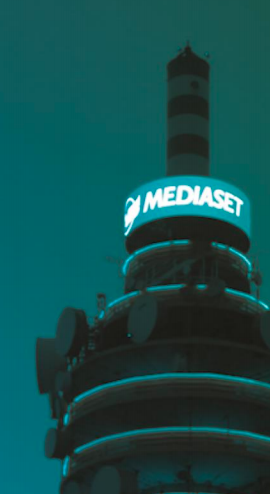
After more than 40 years of operation, DTVE is closing its doors and our website will no longer be updated daily. Thank you for all of your support.
Mediaset secures victory against Vimeo in latest copyright ruling
 Mediaset has claimed another victory in its battle against copyright infringement by online video services with a legal judgement against Vimeo.
Mediaset has claimed another victory in its battle against copyright infringement by online video services with a legal judgement against Vimeo.
The Court of Rome has ordered the online video portal to pay close to €5 million in damages and €80,000 in court costs after it was found guilty of hosting copyright material from the Italian broadcaster.
Vimeo will also be liable to pay €5,000 a day for each day that it fails to remove offending material.
According to Mediaset, the court accepted that Vimeo is a company operating in the entertainment and advertising business based on the published content and has at its disposal the technical means to eliminate 98% of the risk of having copyright-protected content uploaded to its site.
The court also ruled that Vimeo had carried out “obvious manipulation” of copyrighted content on its site, demonstrating that it knew the content was uploaded illicitly.
The latest ruling is the second this week in which Mediaset has won a victory over an online video platform. The court earlier fined Vivendi-owned Dailymotion €5.5 million for similar offences.
The Italian broadcaster said of that ruling that it had balanced the he relationship between those who produce content and online platforms that “are too often convinced that they are above the law”.
The company said of the latest court victory that it was “a new step in the direction of a rebalancing of the relationship between content producers and digital media platforms”.
Earlier this year, Mediaset won victories over Yahoo! And Facebook for copyright infringement. In the Facebook judgement in February, the court ruled that the social network was responsible for hosting unauthorised links to Mediaset content.
The case was brought after anonymous users opened a Facebook page dedicated to a cartoon, Kilari, broadcast by Italia 1. Some links on the page took users to copyright-protected content that had been illegally uploaded to YouTube, with other links led to posts realting to presenter Valentina Ponzone that Mediaset alleged were defamatory.
Facebook’s defence was that the Italian court did not have jurisdiction in this case and that it was eligible for safe harbour protection under Italy’s law implementing Article 14 of the EU e-commerce directive, which provides certain liability exemptions for hosting links to third-party content.
The Italian ruled that it had liability under the Brussels Convention and that Article 14 did not apply because Facebook had failed to act with the required level of diligence to remove the links.
An earlier eight-year battle between the Italian broadcaster and Google over material on YouTube was settled in 2015 when the pair agreed to collaborate to protect content rights.


